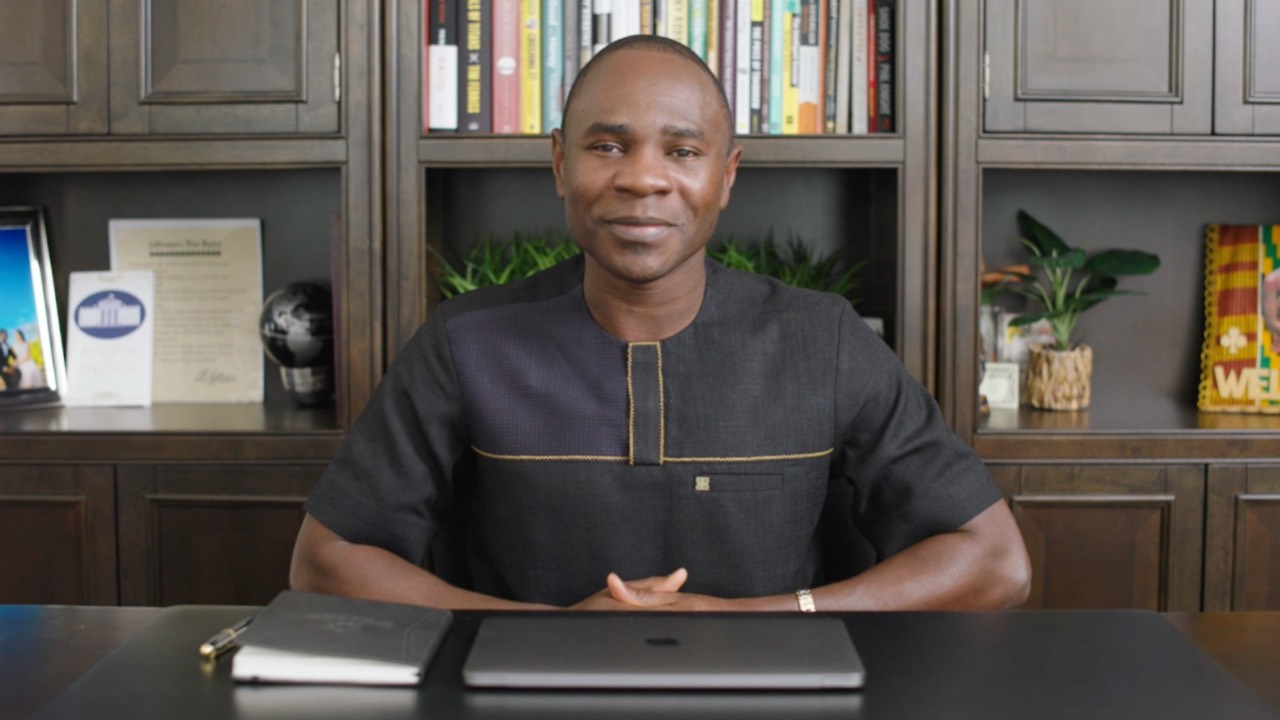We Plan to Make An Extra $1 Million Using Our Tax Refund

The average American has less than $10,000 in their retirement account. You might be surprised to know that 83% of U.S. residents receive a tax refund and the average amount issued is $3,050.
What is everyone doing with their tax refund?
Americans are consumers. We spend more than any other country in the world. We obsess over purchases (instead of investments) and have a financial system that encourages us to buy more than we can afford. Our addiction to spending is the problem. But, we can change this.
If you take all the money in the world and divide it evenly amongst everyone. In no time, the money will end up in the same pockets. — Jim Rohn
Jim Rohn is right. Consumers will spend the money they have, and it will end up right back in the pockets of investors. Think about it — every time a consumer spends money, it drives up the value of a company, and this rewards shareholders. This realization changed my life.
Most individuals aren’t taught anything about investing in school,...
Building Wealth: Lessons Learned from 13 Years of Studying Money

As an immigrant who arrived in the US with little knowledge of money, most individuals can’t believe how much my life has changed since then. I met a mentor who encouraged me to learn about money, and everything changed for me.
Watching my own journey from the bottom 10% to the top 1% was a testament to the power of understanding money and wealth.
Over the years, I have documented and saved all the valuable lessons that have helped me on my journey to creating generational wealth. These lessons are simple, yet powerful, and can make a significant difference in your financial life.
By following these principles, I have been able to build a solid foundation of financial security and create a life that I once only dreamed of.
1. Spend less than you earn 💰
Living below your means is one of the most important steps in achieving financial security. It is the foundation of wealth building. By spending less than you earn, you will have money left over to save and invest, which can he...
The Pursuit of Happiness

The story of Dr. Hans Boateng, MBA ‘16 is one of achieving the quintessential American Dream. Born and raised in Ghana, West Africa, he and his parents immigrated to the United States to pursue greater opportunities and a better life. Today, he has proudly earned two higher academic degrees and runs multiple entrepreneurial ventures, all while continuing to give back to his native country through charitable work.
Yet despite all of these achievements, “Dr. Hans” as he’s now known professionally, continues to look for opportunities to give back to the communities that raised him. Utilizing skills he honed while pursuing a full-time MBA at William & Mary’s Raymond A. Mason School of Business he develops educational programs focused on teaching lower-income, minority, and immigrant populations on how to build personal wealth and invest on a limited income.
Education is the foundation
From an early age, Boateng was taught by both his culture and his family that the key to success involv...
10 Huge Mistakes Millennials Make with Retirement Investing

1. Saving Without Investing
Saving is important, but saving without investing is a common mistake. As I write, the current return on a savings account is about 0.03%. Meaning it would take about 138 years to double the money you put in a savings account (think about that).
Every dollar saved is money you aren’t investing. I encourage millennials to hold no more than 6 to 12 months of their salary in a savings account. The goal is to grow your money so you can retire comfortably. The only way to do that is by investing.
2. Overpaying Loans After Graduation
Most graduates have loans and are stressed about it. This shouldn’t be the case, but, unfortunately, some financial experts encourage millennials to be scared of their debt. Many encourage them to pay it all off before investing. This is a mistake. And being scared of student loans is just plain wrong.
Most of these ‘old experts’ lived during a time where they could work over the summer to pay for college. We live in an entirely ...
Paying Off Debt Too Quickly Can Be Dangerous
No one likes debt, but if you had to choose, which debt would you prefer to have, a student loan or a mortgage? I’m almost certain you would prefer a mortgage. But, a federal student loan is better, let me explain.
Student loans have benefits that a mortgage simply cannot offer. Some of these benefits include loan forgiveness, loan deferment, no credit checks and income-based repayment.
Student loan debt is low-interest debt that is easily paid off with the income you receive from using your degree. If you pursue a good career with numerous job prospects, your student loan can easily be paid off. Plus, you’ll keep making money from the degree for the rest of your life. Not to mention, no one can foreclose on your degree.
Old-school financial experts speak negatively about student loans. They simply do not understand how this new economy works. In this economy, it is okay to have good debt if it brings you money. Old-school experts will not understand why it is okay to have good debt...
The Focus on Saving Will Make it Impossible for You to Retire

When millennials were asked, in a Merrill Edge report, what they could rely on in 20 years, the vast majority said their savings account.
This response is concerning because the current interest rate on a savings account is so low it would take 137 years for the money to double, versus seven years if that money was invested.
A savings account is not an account for hoarding money. Many millennials don’t realize this because the account provides a false sense of security. The funds in a savings account provide a feeling of wealth and accomplishment. This feeling is short-lived. When an individual grows old, they realize the money in a savings account is nowhere near enough to be able to retire. Unfortunately, most individuals find out when it is too late. For everyone else who still has time, you have to know the true purpose of a savings account.
A savings account should be used to hold money that you can access in the event of an emergency. In other words, a savings account is an em...
Frustrated, Scared and Upset — Why I Created the Investing Tutor.

A friend called me; she was frustrated, scared and upset. She had just graduated from a professional program and couldn’t handle the burden of student loans. She was newly engaged to be married and felt trapped under the weight of many important financial decisions that had to be made.
Up until our conversation, she had never been exposed to personal finance as it relates to managing student loans or investing for the future. She told me on the phone, “Hans, I feel like ALL of our money goes to pay loans. I’m so frustrated. We’ll never be able to get married anytime soon.”
I was on the phone with her for an hour and provided education about student loans, the available repayment options and how to begin investing for the future. Exactly one year from our conversation, she and her finance’ bought a beautiful home and had their dream wedding.
It was her success (and that of MANY others), which encouraged me to create The Investing Tutor to educate others about personal finance and inv...
Five Hidden Benefits Of Student Loans You Need To Know About

The rules and repayment options available to graduates with student debt changed in 2015, as a result of a Memorandum issued by President Obama.
I wish financial experts would educate themselves about the new rules and stop scaring graduates about their student loan debt. One expert went all the way to say one should put off retirement planning completely until student loans are paid off. This type of information is misleading and can hurt the financial future of an unknowing student, who may take it literally.
So, why am I concerned?
On a daily basis, colleagues share with me the anxiety they experience surrounding their student loans. I often shake my head in disbelief, because their rent payment (or mortgage), car payment, phone bill and utility bills, due every month, should elicit more anxiety than that of federal student loans. The reason being, for periods of unemployment, federal student loan payments can be waived. You can’t say the same for other payments or bills.
About ...

